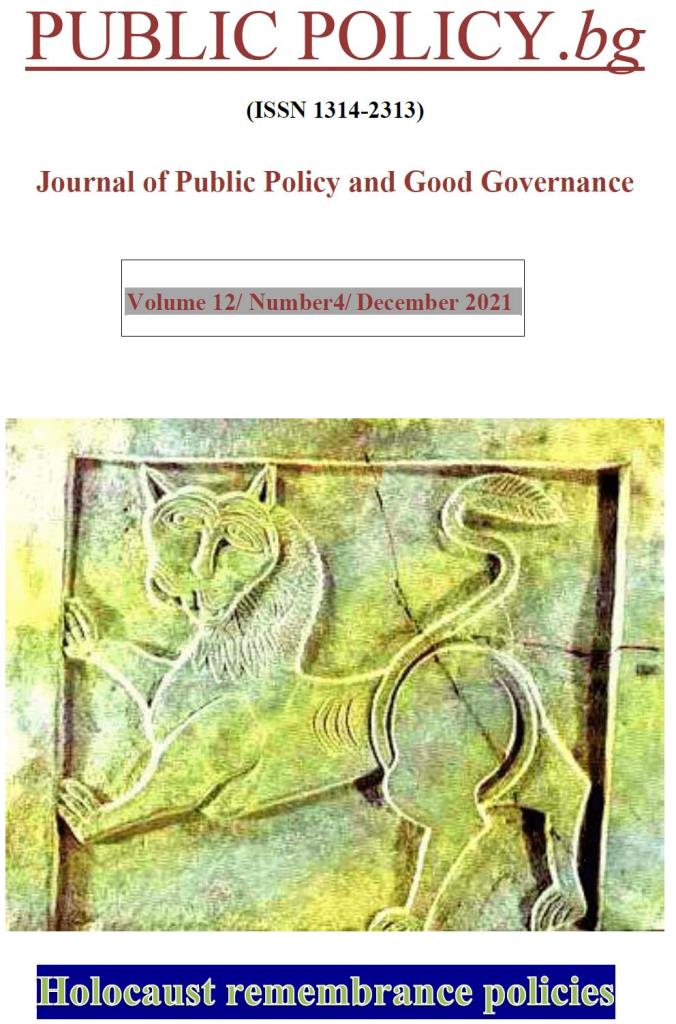THE ROLE OF INSTITUTIONAL CAPACITY FOR THE HOLOCAUST REMEMBRANCE: THE BULGARIAN CASE
THE ROLE OF INSTITUTIONAL CAPACITY FOR THE HOLOCAUST REMEMBRANCE: THE BULGARIAN CASE
Author(s): Albena TanevaSubject(s): Politics / Political Sciences, Social Sciences, Jewish studies, Civil Society, Public Administration, Sociology, Jewish Thought and Philosophy, History of Judaism, History of Antisemitism
Published by: Софийски университет »Св. Климент Охридски«
Keywords: Holocaust remembrance; memory policy; Bulgarian Jews; IHRA
Summary/Abstract: THE ROLE OF INSTITUTIONAL CAPACITY FOR THE HOLOCAUST REMEMBRANCE: THE BULGARIAN CASEThe article examines the concept of memory policies in different perspectives. A central category of analysis is Holocaust remembrance policies and the role of the institutional approach for achieving sustainable results and developing values in the social environment. The reasons for the deficits in the memory of the Holocaust, the periodization in the stories about the Holocaust in Bulgaria and the importance of the factors of the political environment for the dynamics in the interpretations of the past are analyzed. The importance of reflection on the historical past, and in particular that of the Holocaust is considered in regard to the social and generational transfer of memory and attitudes.
Journal: ПУБЛИЧНИ ПОЛИТИКИ.bg
- Issue Year: 12/2021
- Issue No: 4
- Page Range: 32-50
- Page Count: 19
- Language: English

